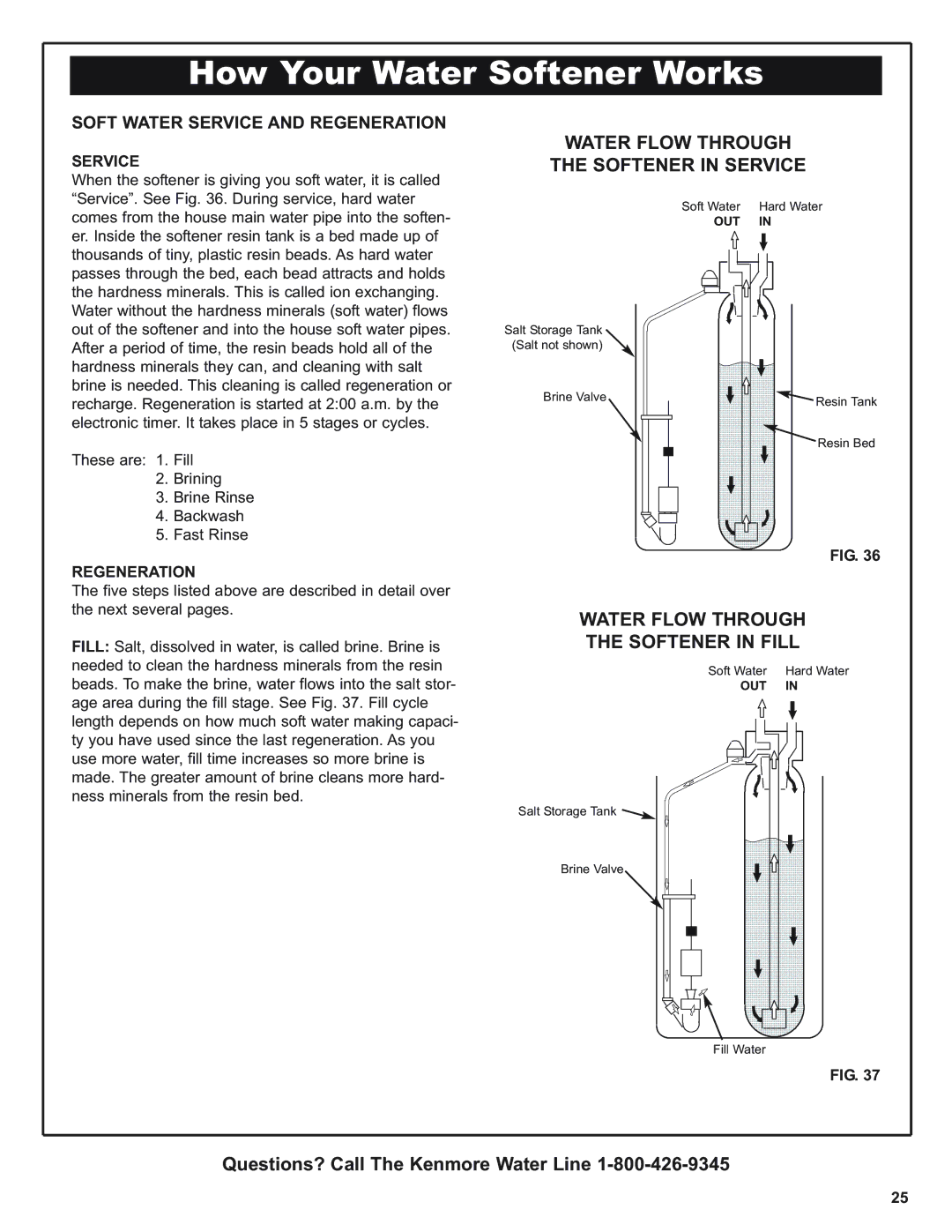
How Your Water Softener Works
SOFT WATER SERVICE AND REGENERATION
SERVICE
When the softener is giving you soft water, it is called “Service”. See Fig. 36. During service, hard water comes from the house main water pipe into the soften- er. Inside the softener resin tank is a bed made up of thousands of tiny, plastic resin beads. As hard water passes through the bed, each bead attracts and holds the hardness minerals. This is called ion exchanging. Water without the hardness minerals (soft water) flows out of the softener and into the house soft water pipes. After a period of time, the resin beads hold all of the hardness minerals they can, and cleaning with salt brine is needed. This cleaning is called regeneration or recharge. Regeneration is started at 2:00 a.m. by the electronic timer. It takes place in 5 stages or cycles.
These are: 1. Fill
2.Brining
3.Brine Rinse
4.Backwash
5.Fast Rinse
REGENERATION
The five steps listed above are described in detail over the next several pages.
FILL: Salt, dissolved in water, is called brine. Brine is needed to clean the hardness minerals from the resin beads. To make the brine, water flows into the salt stor- age area during the fill stage. See Fig. 37. Fill cycle length depends on how much soft water making capaci- ty you have used since the last regeneration. As you use more water, fill time increases so more brine is made. The greater amount of brine cleans more hard- ness minerals from the resin bed.
WATER FLOW THROUGH
THE SOFTENER IN SERVICE
Soft Water Hard Water
OUT IN
Salt Storage Tank |
|
(Salt not shown) |
|
Brine Valve | Resin Tank |
| |
| Resin Bed |
FIG. 36
WATER FLOW THROUGH
THE SOFTENER IN FILL
Soft Water Hard Water
OUT IN
Salt Storage Tank ![]()
Brine Valve
Fill Water
FIG. 37
Questions? Call The Kenmore Water Line
25
